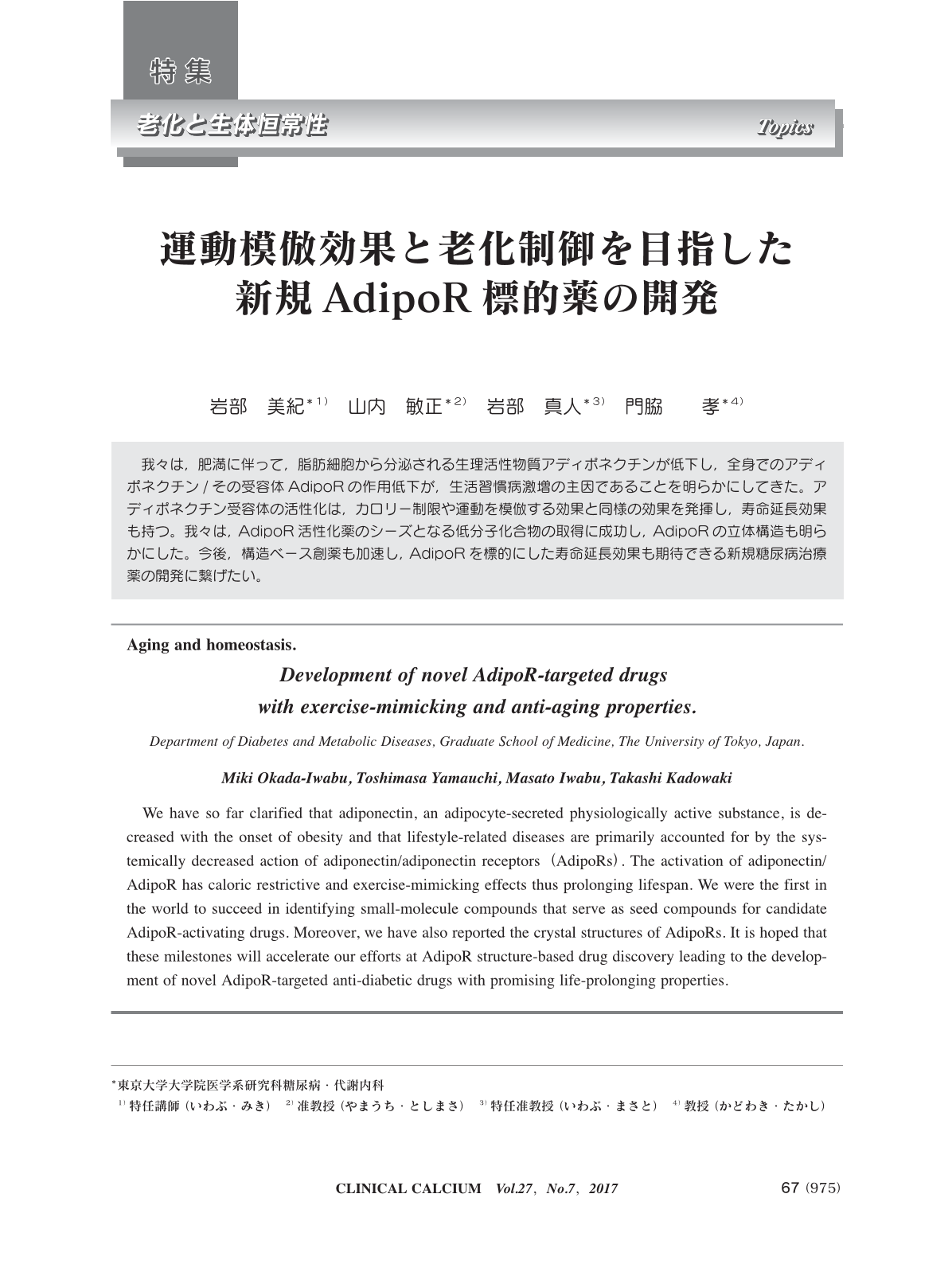Japanese
English
- 有料閲覧
- Abstract 文献概要
- 1ページ目 Look Inside
- 参考文献 Reference
我々は,肥満に伴って,脂肪細胞から分泌される生理活性物質アディポネクチンが低下し,全身でのアディポネクチン/その受容体AdipoRの作用低下が,生活習慣病激増の主因であることを明らかにしてきた。アディポネクチン受容体の活性化は,カロリー制限や運動を模倣する効果と同様の効果を発揮し,寿命延長効果も持つ。我々は,AdipoR活性化薬のシーズとなる低分子化合物の取得に成功し,AdipoRの立体構造も明らかにした。今後,構造ベース創薬も加速し,AdipoRを標的にした寿命延長効果も期待できる新規糖尿病治療薬の開発に繋げたい。
We have so far clarified that adiponectin, an adipocyte-secreted physiologically active substance, is decreased with the onset of obesity and that lifestyle-related diseases are primarily accounted for by the systemically decreased action of adiponectin/adiponectin receptors(AdipoRs). The activation of adiponectin/AdipoR has caloric restrictive and exercise-mimicking effects thus prolonging lifespan. We were the first in the world to succeed in identifying small-molecule compounds that serve as seed compounds for candidate AdipoR-activating drugs. Moreover, we have also reported the crystal structures of AdipoRs. It is hoped that these milestones will accelerate our efforts at AdipoR structure-based drug discovery leading to the development of novel AdipoR-targeted anti-diabetic drugs with promising life-prolonging properties.



